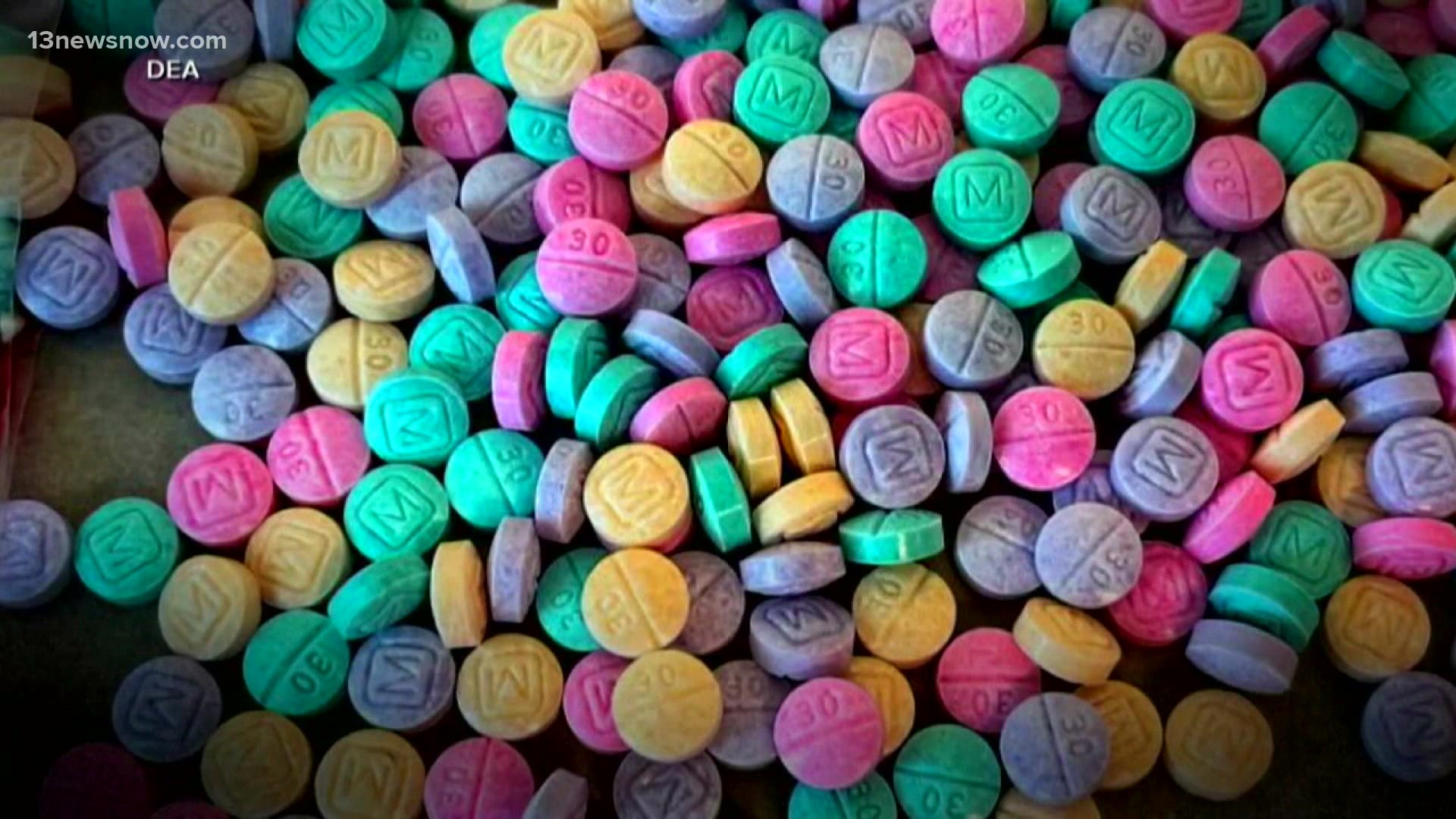HAMPTON, Va. — Drug Enforcement Administration Special Agent In Charge Jarod Forget believes fentanyl-laced pills disguised as opioids are the deadliest threat the country has seen in quite a while.
"Just last year, we analyzed the pills that were seized by DEA. We found that four out of every 10 pills that were seized and analyzed by DEA contained a deadly amount of fentanyl. That's just two milligrams of fentanyl needed to kill a human being," he said.
What makes this crisis even more alarming for the DEA is the introduction of what's called "rainbow" fentanyl, colorful pills that could be mistaken for candy and may be distributed through social media.
So far, large amounts have been seized in the neighboring states of West Virginia and Maryland. Virginia could be next.
"The cartels are in our area. They're in the Commonwealth of Virginia. They're in the DMV [District of Columbia-Maryland-Virginia]. They're in North Carolina. They are in the entire area,'' Forget said.
More than 107,000 people in the United States died from fentanyl overdoses last year. Two-thirds of overdose deaths in Virginia in 2021 involved fentanyl.
The launch of the "One Pill Can Kill" campaign has led to 10.2 million fentanyl pills being taken off the streets nationwide.
"Almost a thousand pounds of fentanyl. That's over 36 million doses," explained Forget. The campaign's purpose is also to draw awareness to the growing fentanyl problem.
While the DEA has its hands full, the opioid epidemic is being fought on another front through the state's Community Services Boards.
A Community Services Boards (CSB) symposium on opioid and peer recovery in Hampton Thursday took on topics from dismantling health inequities with recovery science to medication-assisted treatment.
Much of the crowd from CSBs in eastern Virginia consisted of people who have battled addiction and now serve as peers to those steeped in the struggle.
"Just having someone who can empathize with what you've been through... that's why it's so important and nobody else can share their lived experience like a peer recovery specialist, " said Renee Edwards, who's been drug-free for 30 years. She currently works as the Regional Recovery Oriented Services coordinator for the Office of Recovery Services.

